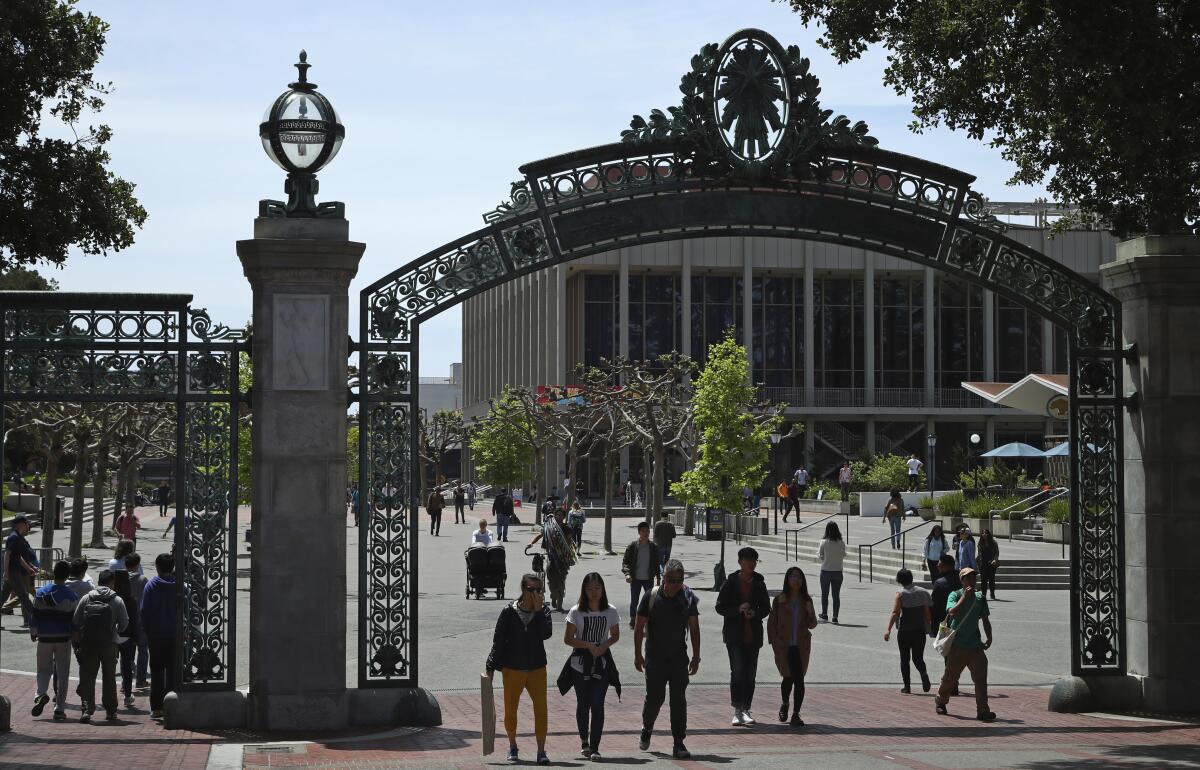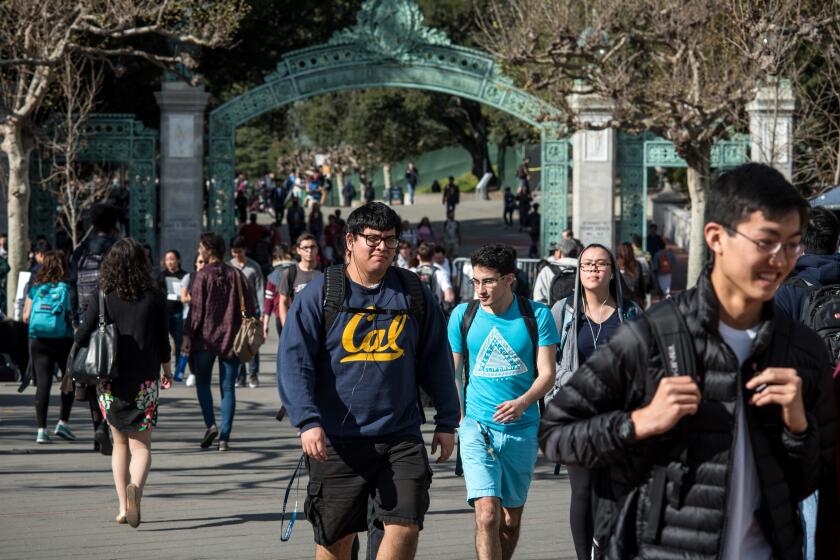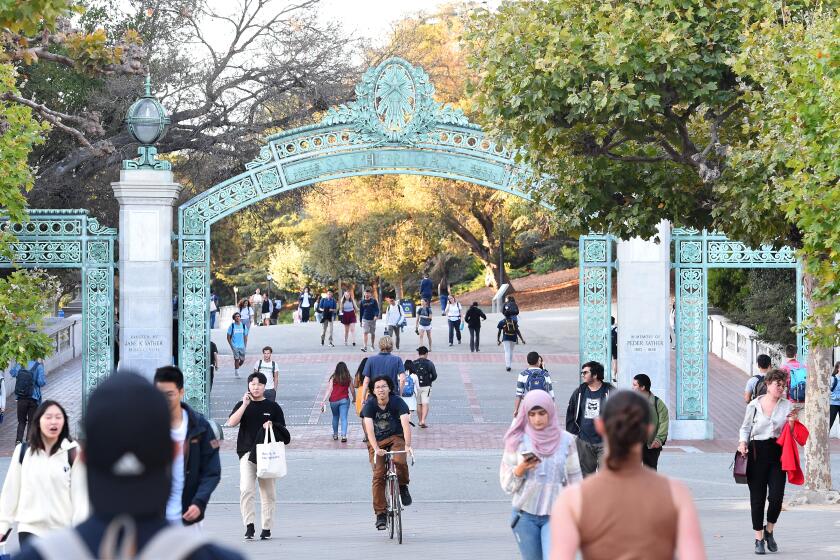Op-Ed: Don’t slam the door on the next generation of UC Berkeley students

- Share via
As the University of California’s flagship campus and one of the nation’s premier public universities, UC Berkeley has a duty to grow to meet the needs of each new generation. As city leaders, we embrace that principle and have worked with the university administration to foster a symbiotic relationship that meets the needs of the campus and the broader Berkeley community.
We are deeply alarmed by the recent court order to require UC Berkeley to turn away 1 out of every 3 undergraduate students that they would have otherwise enrolled in the incoming fall 2022 class. For the tens of thousands of applicants who just this week received notice that their admission may hang in the balance, the reversal of this court decision can’t come soon enough.
UC Berkeley may be forced to slash its incoming undergraduate class by one-third, or 3,050 seats, and forgo $57 million in lost tuition.
The appellate court decision issued last week ordered UC Berkeley to adhere to a lower court order that requires the school to freeze enrollment at the same level as the 2020-2021 academic year. This means 3,050 fewer seats would be available for this fall’s class. The previous ruling, made last August, stems from a Berkeley neighborhood group’s lawsuit that challenges the environmental impact of the university’s expansion plan.
UC Berkeley is often a launchpad for upward mobility, helping first-generation and lower-income Californians build livelihoods, forge personal and professional connections, all of which help many give back to their communities. In recent years, each new class of UC Berkeley students has been more diverse than the last, and more of its students receive federal aid through Pell Grants than at any campus in the Ivy League.
For thousands of would-be students, a freeze on UC Berkeley enrollment would forever change the course of their lives. With $57 million in lost tuition, it would significantly impact the campus’ ability to serve students, and in turn have a domino effect, cutting into financial aid, the number and type of classes offered, student services and facilities maintenance. When fewer of our children are able to pursue higher education, we all lose out — our cities, our local businesses and the future of California.
We share the University of California’s profound disappointment in this decision and feel deeply for all the prospective students whose futures are now in limbo. When disagreements arise, the city and university remain committed to finding common ground and fair compromises. But one thing we are in complete agreement on: The future of the next generation should never be compromised.
On Monday, the University of California Board of Regents asked the California Supreme Court to stay the order to freeze enrollment, but there is some concern that the court will not step in.
We implore the state high court to issue a stay and subsequently overturn the lower court’s decision to limit enrollment. The court’s decision will likely hinge on its interpretation of the California Environmental Quality Act, which began as a modest and well-intentioned environmental measure but has increasingly resulted in unintended consequences — of which an enrollment cap at UC Berkeley is merely one.
The CEQA lawsuit stopping UC Berkeley from expanding enrollment shows it’s too easy to exploit California’s main environmental law.
As the court deliberates, we hope the threat of unfulfilled promises for higher education and the original intent of California’s environmental laws weigh heavily on the justices’ minds.
Everyone should be worried when access to one of the state’s oldest and most acclaimed institutions of higher learning is reduced. Neighbors of the campus — some of whom first came to Berkeley as students — who are seeking to limit the growth of the student body, cite the severity of the housing crisis as a reason to curb admissions.
Rather than slamming the door on the next generation of students, we should focus on building the dwellings, particularly student housing and permanent supportive housing, necessary to solve this crisis. The city of Berkeley and UC Berkeley are committed to doing just that, by rezoning the city for denser development and establishing new dormitories on all available campus sites.
If the California Supreme Court allows to stand the ruling requiring UC Berkeley to slash enrollment, it has the potential to set a dangerous precedent for the whole of public higher education in California — and perhaps beyond.
Jesse Arreguín is the mayor of Berkeley. Lori Droste and Rigel Robinson are members of the Berkeley City Council.
More to Read
A cure for the common opinion
Get thought-provoking perspectives with our weekly newsletter.
You may occasionally receive promotional content from the Los Angeles Times.












